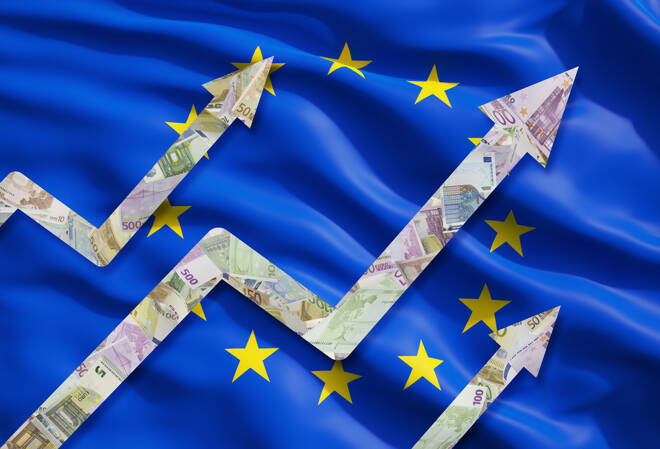Advertisement
Advertisement
European Equities: U.S Politics, Economic Data, and the ECB Minutes to Influence
By:
Economic data and the ECB minutes will provide direction, though Trump's tweet of stimulus measures on Wednesday may be the key driver.
Economic Calendar:
Thursday, 8th October
German Trade Balance (Aug)
ECB Monetary Policy Meeting Minutes
The Majors
It was a mixed day for the European majors on Wednesday. The DAX30 rose by 0.17%, whilst the CAC40 and EuroStoxx600 slipped by 0.27% and 0.12% respectively.
Economic data from Germany in the week continued to provide support to the DAX. While industrial production numbers disappointed, more than a 2-year composite PMI for September was good enough.
Market reaction to Trump’s announcement to postpone COVID-19 stimulus bill negotiations weighed, however.
After the European close on Tuesday, Trump had called off negotiations until after the Presidential Election. There mixed signals on Wednesday, however, when Trump tweeted that there would be support for airlines and other stimulus measures. The 2nd tweet led to a rebound in the U.S equity markets on Wednesday.
The Stats
It was a relatively quiet day on the Eurozone economic calendar.
Key stats included August industrial production figures from Germany.
In August, industrial production fell by -0.20%, following a 1.40% rise in July. Economists had forecast a 1.50% increase.
According to Destatis,
- Production in industry excluding energy and construction was down 0.7%.
- Within industry, the production of intermediate goods increased by 3.3%. The production of consumer goods fell by 1.3%, with the production of capital goods down by 3.6%.
- Outside industry, energy production was up by 6.7%, while production in construction was down by 0.3%.
- Production in the automotive industry slid by 12.5% from the previous month, reversing an 8.9% jump in July. The slide left production just under 25% below the level in Feb-2020.
- Year-on-year, industrial production was down by 9.6%.
From the U.S
It was a particularly quiet day on the economic calendar. There were no material stats to provide the European majors with direction late in the day.
While there were no stats, the European majors responded to Trump’s decision to end stimulus negotiations until after the election.
The markets had found plenty of support on the hopes that Congress would reach an agreement…
On the monetary policy front, the FOMC meeting minutes were released after the European close. The U.S markets, however, responded to Trump’s tweets of more stimulus that should influence the European majors on Thursday.
The Market Movers
For the DAX: It was a bullish day for the auto sector on Wednesday. Continental and Daimler rallied by 4.10% and by 3.53%. BMW and Volkswagen saw more modest gains of 2.25% and 1.54% respectively.
It was a mixed day for the banks, however. Deutsche Bank rose by 1.86%, while Commerzbank slipped by 0.13%.
From the CAC, it was a mixed day for bank stocks. Soc Gen and BNP Paribas rose by 1.51% and by 0.21% respectively. Credit Agricole ending the day with a 1.34% loss, however.
It was another mixed day for the French auto sector. Peugeot ended the day flat, while Renault closed out the day with a 2.21% gain.
Air France-KLM found yet more support, rising by 3.23%, while Airbus SE fell by 1.58%.
On the VIX Index
A run of 6 consecutive days in the green came to an end on Wednesday. Following a 5.44% rise on Tuesday, the VIX fell by 4.82% to end the day at 28.06.
Trump’s tweet of planned stimulus for airlines and other stimulus measures drove support for the U.S majors on Wednesday. Hopes of a smaller, interim stimulus package drove demand for the U.S majors on the day.
The NASDAQ and S&P500 rose by 1.88% and by 1.74% respectively, with the Dow gaining by 1.91%.
The Day Ahead
It’s another relatively quiet day on the Eurozone economic calendar.
Key stats include Germany’s trade data for August.
The markets will be looking for some upbeat stats following Germany’s pickup in private sector activity.
On the monetary policy front, the ECB monetary policy meeting minutes will also draw attention later in the day.
Away from the economic calendar, Brexit talks will likely garner plenty of attention. At a minimum, talks will need to continue next week…
From the U.S, the weekly jobless claims figures will provide direction later in the day. Ahead of the European open, the Vice Presidential debate will set the tone as Pence and Harris face off this morning.
Following Trump’s tweets on Wednesday, which led to a rebound in the U.S markets, there will be early support ahead of the European open.
The Futures
In the futures markets, at the time of writing, the Dow was up by 45 points, with the DAX up by 48 points.
For a look at all of today’s economic events, check out our economic calendar.
About the Author
Bob Masonauthor
With over 28 years of experience in the financial industry, Bob has worked with various global rating agencies and multinational banks. Currently he is covering currencies, commodities, alternative asset classes and global equities, focusing mostly on European and Asian markets.
Advertisement
